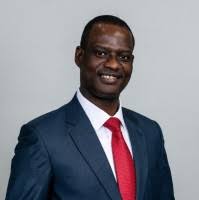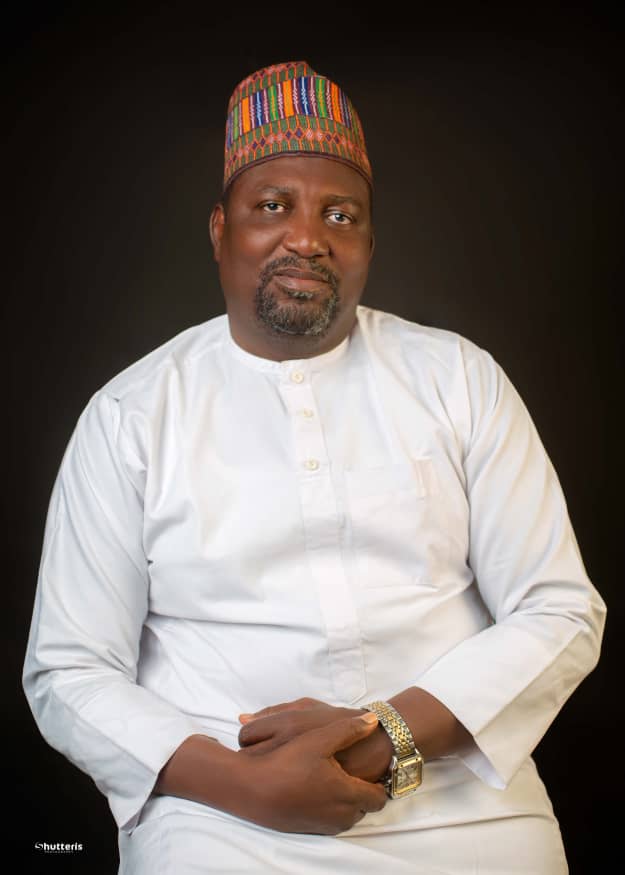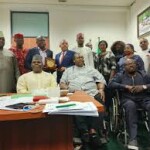Again, a far-reaching reform in Nigeria just polished off disability. Nobody is spared the guilt
By Elijah Olusegun
Disability policy wonks have always expressed worries that inclusion stands little chance of retrofitting if a bill originates from the National Assembly; no chance in hell if it floats in from the executive.
The experts can never go wrong.
The four tax reform bills President Bola Tinubu sent to the NASS late in the year lack disability components. Not many have observed that. The debate it generated hasn’t helped the disability cause, either, having engrossed everyone. Lawmakers and the House Committee on Disability have since occupied themselves with other things. The inequity that characterizes the incoming tax administration—the first since the 2003 National Tax Policy—gets no attention. Nigeria’s disability community and the National Commission for Persons with Disabilities (NCPWD), too, gave the bills short shrift. Even Tinubu’s Office of Special Needs and Equal Opportunities couldn’t chip in a word—for equity’s sake. (It took Taiwo Oyedele and his Presidential Committee on Fiscal Policy and Task Reform over 15 months to grind out those bills.) The Joint National Association of Persons with Disabilities (JONAPWD) President Abdullahi Aliyu Usman, though, said the umbrella body is following up on the debate.
So is Sanya-Olu Abdul-Rahaman, a home essential maker and member of the Lagos Nigeria Association of the Blind (NAB). Of concern to him is what comes after the bills become laws, especially the Nigeria Tax Bill 2024: the taxman chiselling away at his income and profit the same way he does other payers’.
The charges are no problem. Sanya-Olu has been a Lagos taxpayer with conscience. "I have linked my Tax Identification Number with my bank account so they can deduct directly,” he told ER early December.
Nothing about the reform bothered him and Bukola Ogunsanya, a confectioner, and even Prince Olagunju. Until they learnt about the bill drafters' insensitivity to disability.

Oyedele
Elsewhere (Sanya-Olu cited Canada, and Usman added UK, Australia, and Sweden), tax authorities don't wear such a thick skin. These countries have Working Tax Credits, deductions, offsets, and other tax incentives for disability. Sure, persons like Sanya-Olu and Bukola working do pay taxes. The authorities, however, remain mindful this category of workers are at a disadvantage, compared to others. So they get paid certain amount every month as tax credits, or get tax deductions. The government also spares them percentages of the taxes on assistive technologies they buy.
Neither of these has happened yet in Nigeria. Sanya-Olu, Bukola (a baker), and Olagunju could either get a job or pine away in joblessness. Whatever, the tax man must wring out his taxes from revenues their business generate, and incomes they earn—or even gravy they never earn. The proposed individual tax rate, based on the bill’s Section 58 (Fourth Schedule) starts from 15 percent of N800,000 , after the first year of earning. Corporate tax stands at 25 percent for companies’ incomes above N50 million annually.
For now, each of the three pays over N10,000 as income tax. “I have enjoyed two waivers so far as a PWD when I filed for zero income,” Sanya-Olu said. “And it is based on the discretion of the tax officer or head of department when you present your disability certificate.” He hasn’t defaulted since then.
The baker also remembered paying over N10,000 to the Lagos Internal Revenue Service (LIRS) last year. It also gets her business account report to work out the business tax. “I work, let’s say, for roughly three days in a week,” she said. When it comes to that, an average entrepreneur not yet hobbled by disability could shift for himself—or slog it out for at least six days a week. They currently pay the same tax rate, income and corporate, as Bukola and Sanya-Olu. And the PWDs will cough up more in VAT when they buy wheelchairs, white canes, digital braille equipment, and other assistive devices—all imported. The Discrimination Act 2019, though, charges the NCPWD to provide these necessities for over 35 million PWDs in Nigeria. What the government commits annually to this shows it doesn’t take disability seriously.
This inequity continues even in the incoming tax administration.
So Bukola may work 30 days a month to earn N800,000. Her 15 percent tax deduction is also what a non-PWD pays for working 14 days a month to earn the same income. The reform has only perpetuated the discrimination against PWDs. Nothing better could have come out of it for them—other than the policy raising the minimum taxable earnings, and proposing no mark-up in tax rates for most Nigerians. That the reform promoters refused to mainstream disability was enough injustice.

JONAPWD President Usman
In the Nigeria Tax Bill 2024, disability shows up twice. Section 164(j) mentions it in exempting only: “wound and disability pensions granted to members of the armed forces or of any recognised national defence organisation, or to a person injured as a result of enemy action;”
The other mention has to do with liabilities in estates held in trust for persons merely damaged by disability.
No fewer than 19 items get VAT exemption under Section 187. None of them has anything to do with disability. Section 188 grants chargeable supplies, numbering 16, zero percentage VAT, too. While this covers items like medicine generally, the exemption leaves items marked “educational books and materials” hanging for PWDs. Reading materials in braille could fall under this exemption—except that blind readers don’t buy braille text books again. But the alternative, digital braille devices, are no books—and they are imported. The exemption doesn’t cover them.
The drafters of the bills took no thought of all these. Nor did the organisations of persons with disabilities. None of those ER interviewed could confirm contributing anything while the bill consultation lasted. JONAPWD didn’t state its own contribution, though its president said the body is following the debate. And it’s not clear if the NCPWD and the House Committee on Disabilities did their own beat while Oyedele and his committee put the bills together. JONAPWD, though, hastened to the NCPWD defence. “The commission’s involvement include advocacy and representation, consultative roles, monitoring and reporting,” said Usman. The commission, however, admitted it couldn’t participate. “There has been something of a turbo-charged approach to presentation of these bills by the executive, effectively undermining the normal processes,” Joseph Okon, director, legal services, told ER.
For the Hon. Dawodu Bashir-led committee, Usman cut in, again, hedging his defence this time. “It is only reasonable to think that the committee was either not consulted or responses were not received before the tax bill was sponsored in the house,” he said. But Dawodu himself wouldn’t say anything when ER asked what his committee planned to do with the tax bills’ lack of disability components. Okon, in their defence, noted the House committee always ask for the commission’s memorandum on any bills on the floor. But he didn’t say if it has done so since the bills got to the House.
Disability policy expert Ope-Olu Akinola wouldn’t let these failures surprise him. “Because non-professionals in disability policy constitute both the House Committee and the NCPWD,” he told ER. “They understand empowerment through charity donations but are unaware of sustainable policy creation that ensures sustainable inclusion of PWDs.”
To him and other observers, the rapid-fire approach Okon complained of hardly constitutes a barrier. The NCPWD, going by the Discrimination Act’s provision that established it, is under the presidency. Its contributions and recommendations should have mainstreamed disability in the lead up to the bills. Granted, it now operates under the Ministry of Humanitarian Affairs; nothing hinders it still from playing its role of representation in bills originating from the executive.
And supposing the House Committee, too, has a grasp of the meat and potatoes of inclusive tax administration, the debate on the floor will have the disability dimension to it. Hon. Dawodu has yet to raise any of such on the floor. ER couldn’t get him to comment, either. Abba-Issa, the senior assistant to the president on special needs and equal opportunities also ignored the request for comments.
Anyways, disability loses by not getting its equal representation in the tax reform. This, Usman said, increases inequalities, decreases well-being, and increases costs of living for the disability community. A NAB’s former president told ER a digital braille embosser currently goes for about N3 million on importation. Not many blind readers can buy that now to independently improve their literacy. So braille illiteracy, already ravaging the blind community, will continue—except the government introduces tax incentives for assistive devices. The NCPWD director, however, said the commission has signed MoUs with the National Agency for Science and Engineering Infrastructure and others to locally manufacture the assistive devices. That solution only buries the violation of PWDs’ right to equal representation in the tax administration and the economy.
Most of the PWDs play in the informal sector of the economy. And a tax reform that stacks the deck against them alienates them. “They may find it harder to comply with the tax regulations,” the JONAPWD president said. Apart from penalty for tax dodging, the risk of financial illiteracy goes up, too. A deaf entrepreneur told ER she has never paid any tax, personal income or corporate. Yet most of government’s interventions in SME development tie back to tax payment. A loan applicant with no tax payment history to verify loses this opportunity.
Sanya-Olu has foreseen how the inequity shakes out for the PWDs grappling with competition in the informal sector. “It will shrink our businesses,” he said. (That is if each earns at least N800 monthly; or each of their businesses grosses in over N50 million annually.) And as push comes to shove, many of them that can’t cope will skirt the tax laws. It’s nothing new. “We have learnt not to move our business money into our business accounts,” one entrepreneur with disability told ER. “So the tax deduction won’t be too large.”
They are all aware of the consequences.
But it’s all they can do.
A tax administration that crams the weak and the strong into one tax funnel should expect no less.







